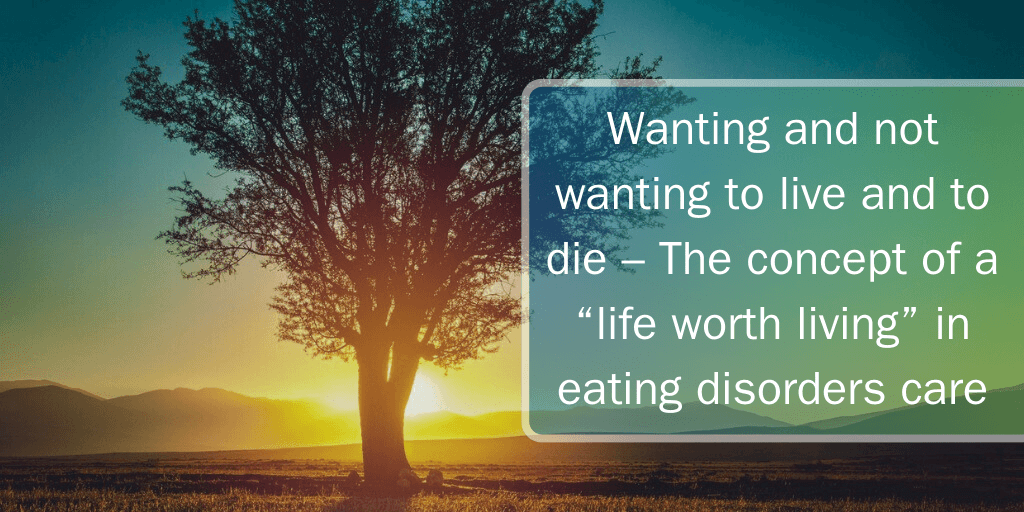Wanting and not wanting to live and to die - The concept of a "life worth living" in eating disorders care

Please note: This webinar is part of a four-part series designed to deepen your understanding of eating disorders. Join us for the full eating disorders webinar series and enhance your skills and insights across all topics:
- Nov. 18, 2024 - Wanting and not wanting to live and to die: The concept of a “life worth living” in eating disorders care.
- Dec. 9, 2024 - Treating suicide and self-harm in youth with eating disorders.
- Jan. 14, 2025 - Building anti-oppressive eating disorder spaces: Unpacking our assumptions.
- March 3, 2025 - The practice and practicalities of DBT skills for eating disorders.
Description: Most eating disorder treatments focus on weight and nutritional stability as primary treatment targets. While essential to recovery, the lack of attention to improving quality of life and working with ambivalence or anosognosia continue to represent a substantial gap in care. Those receiving care have reported a desire for treatments to be more collaborative, less rigid in their definitions and approaches to recovery, and to prioritize and broaden approaches to psychological and physical well-being.
MED-DBT is an innovative, multimodal treatment designed for individuals suffering with multiple co-occurring conditions in the context of an eating disorder. Like standard DBT, the overarching goal MED-DBT is to help clients escape “survival mode” and build lives that they experience as worth living. Linehan (1993) described a life worth living as one that has personal meaning, a sense of purpose and connection, and one that brings joy and pleasure.
To date, most of the published literature on LWL focuses on suicide and self-injury. What does a LWL mean for those struggling with eating disorders? In our experience, the concept of building a LWL presents unique challenges when applied to EDs. For example, how does one build a LWL in cultures that are systemically weight biased and motivated by diet culture? How might the clinician’s own views about eating, weight, and health impact LWL discussions? In addition, those struggling with EDs also experience ambivalence, anosognosia, and/or co-occurring physical conditions that can worsen with traditional ED recovery making a LWL a complicated goal.
In this training, James and Anita will take participants through an in-depth exploration of the LWL discussion in the ED context. Participants can expect a highly engaging and interactive workshop that will address definitions of LWL, who is included and excluded in common quality of life dialogues, our personal relationship to LWL, how to help clients build a LWL without falling into hopelessness or despair, the role of the clinician and caregivers, and exploring obstacles.
Learning objectives:
- Describe and define the concept of “building lives worth living in DBT
- Identify why the life worth living goal may be challenging when working with people with eating disorders
- Demonstrate practical ways to bring the LWL conversation into the therapy context
- Explain why it is helpful to find a middle ground when talking about living and dying in the care of those with EDs.
- Explore collaborative and dialectical strategies to help clients find meaning, purpose, and value - even in the face of ambivalence.
Browse our full lineup of webinars and register today to take the next step in your career – Remember to use code OPA15 to access your 15% savings at www.sickkidscmhlearning.ca.
